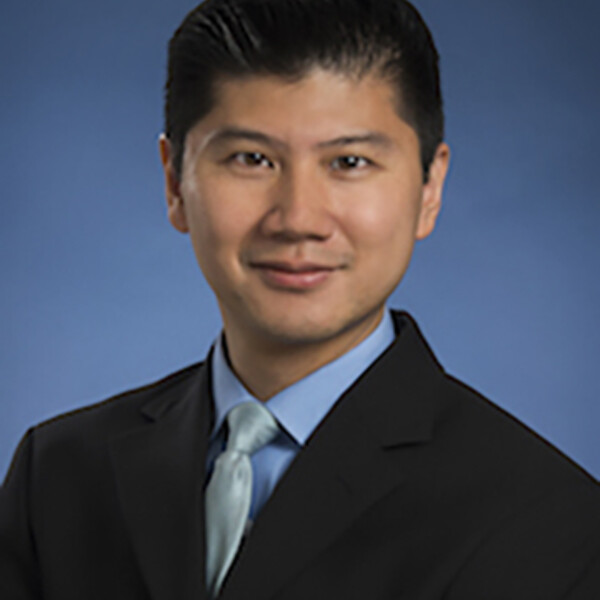Steven Chan
PhD, Stanford University in California

At A Glance
Our lab is dedicated to understanding how blood cancers, especially acute myeloid leukemia (AML), arise and evolve. A central focus is clonal hematopoiesis, the age-associated expansion of mutant blood stem cells that can precede leukemia. We study how these mutant clones gain a competitive advantage and explore ways to intercept them before they progress to cancer.
To answer these questions, we combine state-of-the-art genetic engineering tools such as CRISPR genome editing and single-cell technologies with functional models of hematopoiesis. These approaches allow us to dissect how genetic and metabolic pathways drive disease and to identify therapeutic vulnerabilities.
Ultimately, our mission is to translate fundamental discoveries into new strategies for leukemia prevention and treatment, with the long-term goal of improving survival and quality of life for patients.
Short Bio
Dr. Chan is a senior scientist and staff physician at Princess Margaret Cancer Centre in Toronto. He is also an Associate Professor in Faculty of Medicine at the University of Toronto. He received his medical and research training at Stanford University in California where he earned his M.D. and Ph.D. degree in Immunology. He completed his internal medicine residency and adult hematology fellowship at Stanford Hospital and Clinics. He started his independent research program at Princess Margaret Cancer Centre in 2015. His current research focuses on developing novel therapeutic approaches against acute myeloid leukemia and clonal hematopoiesis.
Research Synopsis
Understanding and Targeting AML
Our program is centered on acute myeloid leukemia (AML), with a focus on the biology of leukemia stem cells and their metabolic and genetic dependencies. Early work uncovered a synthetic lethal interaction between IDH1/2 mutations and BCL-2 inhibition, demonstrating that venetoclax preferentially eliminates IDH-mutant AML cells. This discovery directly influenced the design of clinical trials, ultimately shaping venetoclax-based therapies now in standard use. More recently, we revealed that NAMPT inhibitors selectively disrupt lipid homeostasis in leukemic stem cells, offering a metabolic vulnerability that can be therapeutically exploited.
Combating Therapy Resistance
Our lab has pioneered approaches to overcome treatment resistance in AML. Using genome-wide CRISPR screens, we showed that mitochondrial translation inhibitors (such as ribosome-targeting antibiotics) restore venetoclax sensitivity. We also identified rational drug combinations, such as venetoclax with enasidenib, now tested in a Canadian investigator-initiated trial, and demonstrated that targeting STAT5 signaling suppresses resistance to IDH inhibitors. These findings highlight the power of mechanistic, genetically informed strategies to drive the design of novel clinical approaches.
Clonal Hematopoiesis and Prevention
A major area of growth in our program is understanding and targeting clonal hematopoiesis (CH), the age-related expansion of mutant blood stem cells that predisposes individuals to AML. We demonstrated that persistent CH-associated mutations impair blood count recovery after chemotherapy, and that excluding these mutations enhances the prognostic accuracy of measurable residual disease assessment. Therapeutically, we showed that TET2-mutated CH can be targeted through DOT1L and JAK2 inhibition, and that metformin specifically suppresses DNMT3A-R882 mutant CH. These findings open the door to interception strategies that could prevent leukemia before it develops.
Future Directions
Looking forward, our lab aims to:
-
Leverage single-cell and multi-omics technologies to map the earliest stages of clonal evolution and identify actionable vulnerabilities.
-
Develop and refine first-in-class therapeutics, including small-molecule inhibitors against mitochondrial quality control proteins such as PINK1, with the goal of advancing to clinical trials.
-
Explore genetic engineering approaches, including CRISPR-based prime editing, to create novel disease models and evaluate targeted interventions.
-
Translate insights from clonal hematopoiesis into clinical prevention trials, laying the foundation for strategies that move beyond treatment to disease interception.
Recent Publications
- Richard-Carpentier G, Gupta G, Koraksic C, Cathelin S, Wang L, Bankar A, Davidson M, Gupta V, Maze D, Minden MD, Murphy T, Schimmer AD, Schuh AC, Sibai H, Yee KL, DiNardo CD, Brandwein J, McNamara CJ, Chan SM. 2025. Enasidenib plus venetoclax in patients with IDH2-mutated relapsed or refractory acute myeloid leukaemia or myelodysplastic syndrome (ENAVEN-AML): a multicentre, single-arm phase 1b/2 trial. Lancet Hematology. Accepted.
- Hosseini M, Voisin V, Chegini A, Varesi A, Cathelin S, Manikoth D, Liu ACH, Yang Y, Wang V, Maher A, Grignano E, Reisz JA, D’Alessandro A, Young K, Wu Y, Fiumara M, Ferrari S, Naldini L, Gaiti F, Pai S, Schimmer AD, Bader GD, Dick JE, Xie SZ, Trowbridge JJ, Chan SM. 2025. Metformin reduces the competitive advantage of Dnmt3aR878H HSPCs. Nature. 642(8067):421-430. PMID: 40240595.
- Yang Y, Cathelin S, Liu ACH, Subedi A, Maher A, Hosseini M, Manikoth Ayyathan D, Vanner R, Chan SM. 2025. TET2 Deficiency Increases the Competitive Advantage of Hematopoietic Stem Cells through Upregulation of Thrombopoietin Receptor Signaling. Nature Communications. 16(1):2384. PMID: 40064887.
- Liu ACH, Cathelin S, Yang Y, Dai DL, Manikoth Ayyathan D, Hosseini M, Minden MD, Tierens A, Chan SM. 2022. Targeting STAT5 signaling overcomes resistance to IDH inhibitors in acute myeloid leukemia through suppression of stemness. Cancer Research. 82(23): 4325-4339. PMID: 36150062.
- Cathelin S, Sharon D, Subedi A, Cojocari D, Phillips DC, Leverson JD, MacBeth KJ, Nicolay B, Narayanaswamy R, Ronseaux S, Liu G, Chan SM. 2022. Enasidenib-induced differentiation promotes sensitivity to venetoclax in IDH2-mutated acute myeloid leukemia. Leukemia. 36(3): 869-872. PMID: 34743189.
- Subedi A, Liu Q, Ayyathan DM, Sharon D, Cathelin S, Hosseini M, Xu C, Voisin V, Bader GD, D'Alessandro A, Lechman ER, Dick JE, Minden MD, Wang JCY, Chan SM. 2021. Nicotinamide phosphoribosyltransferase inhibitors selectively induce apoptosis of AML stem cells by disrupting lipid homeostasis. Cell Stem Cell. 28(10): 1851-1867. PMID: 34293334.
- Sharon D, Cathelin S, Mirali S, Di Trani JM, Yanofsky DJ, Keon KA, Rubinstein JL, Schimmer AD, Ketela T, Chan SM. 2019. Inhibition of Mitochondrial Translation Overcomes Venetoclax Resistance in AML Through Activation of the Integrated Stress Response. Science Translational Medicine. 11(516):eaax2863. PMID: 31666400.
Graduate Students
Paige Roehrig
Stephanie Liu
Abdula Mahar
Vivian Wang
